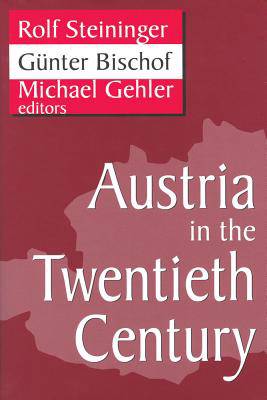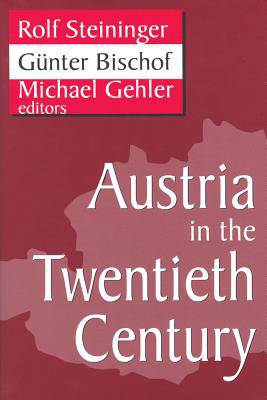
En raison d'une grêve chez bpost, votre commande pourrait être retardée. Vous avez besoin d’un livre rapidement ? Nos magasins vous accueillent à bras ouverts !
- Retrait gratuit dans votre magasin Club
- 7.000.000 titres dans notre catalogue
- Payer en toute sécurité
- Toujours un magasin près de chez vous
En raison de la grêve chez bpost, votre commande pourrait être retardée. Vous avez besoin d’un livre rapidement ? Nos magasins vous accueillent à bras ouverts !
- Retrait gratuit dans votre magasin Club
- 7.000.0000 titres dans notre catalogue
- Payer en toute sécurité
- Toujours un magasin près de chez vous
Description
These fourteen essays by leading Austrian historians and political scientists serve as a basic introduction to a small but sometimes trend-setting European country. They provide a basic up-to-date outline of Austria's political history, shedding light on economic and social trends as well. No European country has experienced more dramatic turning points in its twentieth-century history than Austria. This volume divides the century into three periods. The five essays of Section I deal with the years 1900-1938. Under the relative tranquility of the late Habsburg monarchy seethed a witch's brew of social and political trends, signaling the advent of modernity and leading to the outbreak of World War I and eventually to the collapse of the Habsburg Empire. The First Austrian Republic was one of the succession states that tried to build a nation against the backdrop of political and economic crisis and simmering civil war between the various political camps. Democracy collapsed in 1933 and an authoritarian regime attempted to prevail against pressures from Nazi Germany and Nazis at home. The two essays in Section II cover World War II (1938-1945). In 1938, Hitler's "Third Reich" annexed Austria and the population was pulled into the cauldron of World War II, fighting and collaborating with the Nazis, and also resisting and fleeing them. The seven essays of Section III concentrate on the Second Republic (1945 to the present). After ten years of four-power Allied occupation, Austria regained her sovereignty with the Austrian State Treaty of 1955. The price paid was neutrality. Unlike the turmoil of the prewar years, Austria became a "normal" nation with a functioning democracy, one building toward economic prosperity. After the collapse of the "iron curtain" in 1989, Austria turned westward, joining the European Union in 1995. Most recently, with the advent of populist politics, Austria's political system has experienced a sea of change departing from its political economy of a huge state-owned sector and social partnership as well as Proporz.This informed and insightful volume will serve as a textbook in courses on Austrian, German and European history, as well as in comparative European politics.
Spécifications
Parties prenantes
- Auteur(s) :
- Editeur:
Contenu
- Nombre de pages :
- 378
- Langue:
- Anglais
- Collection :
Caractéristiques
- EAN:
- 9781412808545
- Date de parution :
- 01-09-08
- Format:
- Livre broché
- Format numérique:
- Trade paperback (VS)
- Dimensions :
- 153 mm x 230 mm
- Poids :
- 566 g

Les avis
Nous publions uniquement les avis qui respectent les conditions requises. Consultez nos conditions pour les avis.






